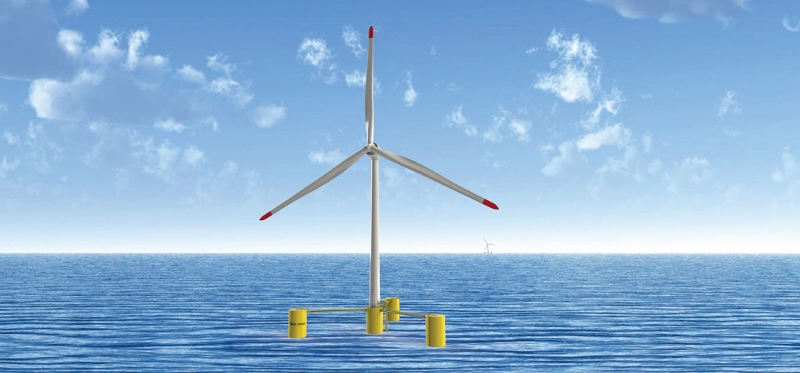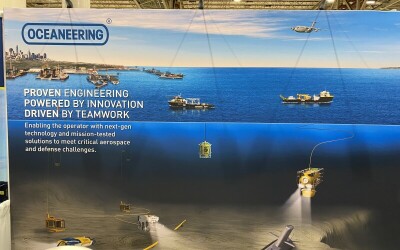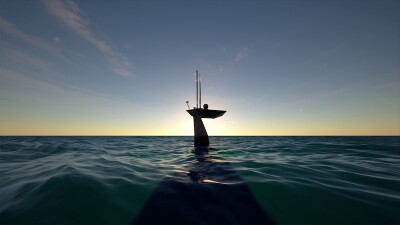Maine is getting a $2.16 million grant from the U.S. Economic Development Administration to map out plans for an offshore wind energy industry, and join other Northeast states already promoting their own vast hopes for turbine arrays.
“Unleashing American innovation is critical to our global competitiveness,” U.S. Secretary of Commerce Wilbur Ross said in announcing the grant Oct. 1. “This project will allow Maine to capitalize on its technical leadership in the wind power sector to diversify and grow the state’s economy and make it more resilient.”
The EDA grant to the Maine Governor’s Energy Office will be matched with $267,624 in state funds and $112,457 in local funds, according to federal officials.
The money will be used to “create a roadmap for establishing a floating offshore wind power industry by examining manufacturing processes, supply chains, port facilities, transportation systems, shipbuilding opportunities, ecosystem relationships, workforce development plans, power interconnections, exports, and economic impacts,” according to Commerce Department official Dana Gartzke.
Maine has followed twists and turns in developing offshore wind. Deeper waters of the Gulf of Maine would require the use of floating turbines, unlike the fixed foundations planned for big projects on the outer continental shelf off southern New England.
The University of Maine has led with a pilot project, an early floating wind turbine off Castine, Maine, that was notable for being the first in 2013 to deliver power to shore.
The Maine Aqua Ventus project, a University of Maine demonstration plan for a pair of 6-megawatt floating turbines off Monhegan Island, was dealt a setback in 2018 by state regulators under former Gov. Paul LePage, a wind energy skeptic.
Now wind power has a more favorable political climate in Maine with the administration of Gov. Janet Mills. With momentum building, the Maine Fishermen’s Forum in early March featured for the first time a full day of seminars on the potential for offshore wind development in the gulf and its impact on fisheries.
“Maine is committed to the development of clean energy, the fight against climate change, and the pursuit of innovation to broaden and strengthen economic opportunities for our people,” Mills said in a joint statement with federal officials.
“This important award will give Maine a roadmap for growing our clean energy economy in collaboration with our heritage industries, especially fishing, in order to support our state's economic recovery from covid-19 and sound the call that Maine intends to be a global competitor, innovator and leader in floating offshore wind.” Maine Sens. Susan Collins and Angus King expressed their support, as did Rep. Chellie Pinegree.
“Mainers currently pay some of the highest electric rates in the country and our offshore wind resource potential is 36 times greater than the state’s electricity demand,” said Pinegree. “This support for offshore wind power will not only lower electricity rates, it will provide a home-grown solution to our energy needs while providing a boost to our economy.”
In April the Responsible Offshore Development Alliance, a coalition of fishing industry groups and communities, urged the federal Bureau of Offshore Energy Management and New England states to take a cooperative approach to plan for offshore wind power that can co-exist with the Gulf of Maine fishing industry.
“Fragmenting the region’s fishermen into state groups (which can be entirely arbitrary for those with federal fishing permits) puts too much pressure on them to follow every meeting and engagement opportunity in each state,” the group proposed in an April 14 letter to BOEM officials and state governors. “Experience in other regions has indicated that a regional group, convened and led by the industry, will be the only fair and equitable way for commercial fishing concerns to be properly addressed.”





